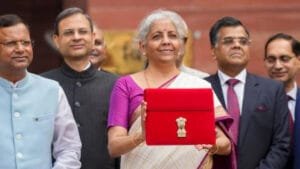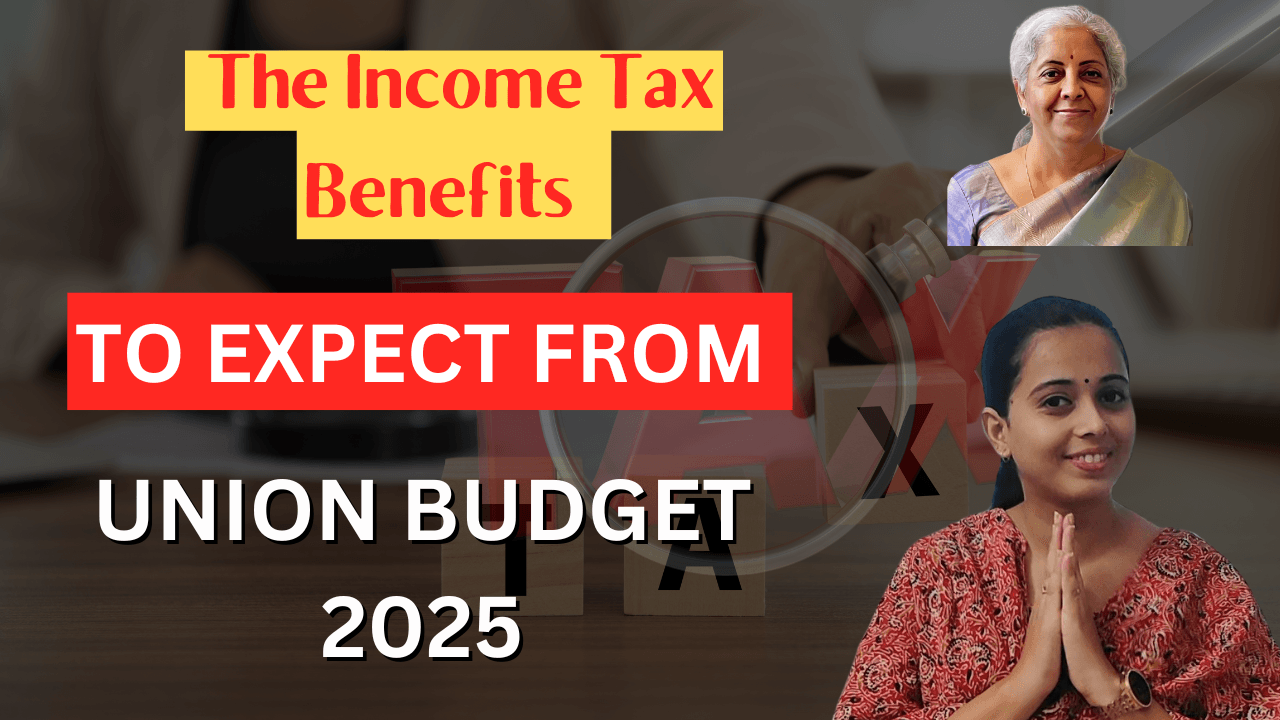Income Tax Benefits to Expect from Union Budget
Income Tax Benefits to Expect from Union Budget As the Finance Minister gears up to present the Union Budget on February 1, 2025, for the financial year 2025-26, the middle-class population eagerly awaits announcements that could bring much-needed relief in the income tax structure. With the rising cost of living and demands for a simplified tax regime, there are high hopes for measures that will reduce the tax burden and increase disposable incomes. Below, we explore the anticipated income tax benefits and reforms that could make headlines in the upcoming budget.
1. Basic Exemption Limit Likely to Rise to ₹5 Lakh
One of the most anticipated changes is the increase in the basic exemption limit from the current ₹3 lakh to ₹5 lakh. This adjustment is expected to provide significant relief to low- and middle-income households by reducing their tax liability. Income Tax Benefits to Expect from Union Budget As reported by The Times of India, this change would ensure that individuals earning up to ₹5 lakh annually do not face any income tax liability under the new tax regime. For many taxpayers, this move would represent a direct boost to their disposable income, alleviating financial stress and fostering economic participation.
Vimal Nadar, Senior Director of Research at Colliers India, remarked in an interview with The Mint that Indian taxpayers are increasingly transitioning to the new tax regime. Income Tax Benefits to Expect from Union Budget He emphasized the importance of revising tax slabs to compensate for the reduced deductions and incentives available under the new structure.
2. Introduction of a 25% Tax Slab for Middle-Income Earners
There is speculation that the government may introduce a 25% tax slab for individuals with annual incomes between ₹15 lakh and ₹20 lakh. This adjustment could bring significant relief to middle-income earners, enabling them to retain more of their hard-earned money.
Additionally, discussions around exempting income tax for earnings up to ₹10 lakh have surfaced. If implemented, this measure would provide substantial liquidity to middle-class salaried individuals, potentially boosting overall consumption and fueling economic growth.
3. Higher Standard Deduction for Salaried Individuals and Pensioners
Another expected reform is the increase in the standard deduction for salaried individuals and pensioners. Currently set at ₹75,000, it could be raised to ₹1 lakh. This revision would effectively reduce the taxable income for millions of taxpayers, translating to tangible financial relief. For pensioners, especially those reliant on fixed incomes, this adjustment could significantly ease their financial burden.
4. Raised Tax Rebate Limit Under Section 87A
Under Section 87A of the Income Tax Act, individuals with taxable incomes up to a certain threshold are eligible for a rebate that nullifies their tax liability. The current limit of ₹7 lakh is expected to be increased, potentially allowing individuals with taxable incomes up to ₹7 lakh to pay no income tax. This move would directly benefit low- and middle-income earners, ensuring greater financial stability and encouraging compliance with the tax regime.
5. Increased Deductions Under Sections 80C and 80D
Sections 80C and 80D of the Income Tax Act are popular avenues for taxpayers to claim deductions on investments and health insurance premiums, respectively. There is speculation that the government may increase the limits for these deductions to encourage savings and investments.
- Section 80C: Currently capped at ₹1.5 lakh, the limit could be raised to accommodate higher investments in instruments such as Public Provident Fund (PPF), National Savings Certificates (NSC), and tax-saving fixed deposits.
- Section 80D: The limit on deductions for health insurance premiums may also see an upward revision, promoting better healthcare planning among taxpayers.
These changes would incentivize financial discipline while providing additional tax relief.

6. Simplification of Tax Deducted at Source (TDS) Provisions
The Tax Deducted at Source (TDS) system has long been a source of complexity for taxpayers. The upcoming budget is expected to address these issues with a comprehensive revamp. Key changes could include:
- A single comprehensive schedule of TDS rates for easier reference and compliance.
- Withdrawal of TDS/TCS certificates to simplify procedural requirements.
- Measures to reduce litigation and ease administrative burdens.
These reforms aim to make compliance more straightforward for businesses and individuals alike, reducing confusion and errors.
7. Introduction of Tax-Free and Tax-Paid Bonds
To fund infrastructure projects, the government may introduce Tax-Free Bonds and Tax-Paid Bonds. These instruments would provide tax-saving investment opportunities to individuals while reducing financing costs for infrastructure development. Income Tax Benefits to Expect from Union Budget By offering attractive returns and tax benefits, these bonds could become a popular choice among investors, helping bridge the gap in infrastructure funding.
Expected Impact on the Middle Class
If the anticipated measures are implemented, the middle class stands to gain significantly:
- Lower Tax Liability: Reforms such as higher exemption limits, new tax slabs, and increased rebates would reduce the overall tax burden.
- Enhanced Savings: Increased deductions under Sections 80C and 80D would encourage taxpayers to save and invest more, fostering long-term financial stability.
- Simplified Compliance: Streamlining TDS provisions would make tax compliance less cumbersome, saving time and effort for individuals and businesses.
Conclusion
The Union Budget 2025 holds the promise of substantial tax reforms aimed at easing the financial pressures on the middle class. With a focus on increasing disposable income, promoting savings, and simplifying compliance, these anticipated measures could pave the way for a more taxpayer-friendly regime. Income Tax Benefits to Expect from Union Budget As February 1 approaches, all eyes will be on the Finance Minister to see if these expectations are met, marking a new chapter in India’s tax landscape.
Sources link – https://rb.gy/t5fli4
For More Information : https://taxgyany.com/

